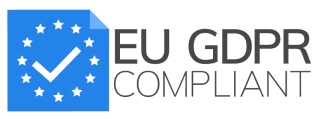At Lifebit, we empower pharmaceutical companies with unparalleled access to a vast global data network, transforming cancer research and patient care. Our advanced solutions in oncology data are designed to tackle the complexities and challenges of this sensitive and distributed data, driving groundbreaking discoveries and personalized treatments.
Contact us
.png)
The Value of Oncology Data for Discovery & Development
Real-world data (RWD) is invaluable in oncology research, providing insights into treatment effectiveness across diverse patient populations. By integrating phenotypic data, genomic data, pathology reports, imaging studies, treatment outcomes, and more, researchers are able to:
- Understand disease biology the biology of cancer
- Predict patient outcomes
- Identify patients
- Develop and validate new therapies
- Personalize treatment plans for better patient care
Challenges in accessing and managing oncology data
.png?width=288&height=297&name=shutterstock_1884612580%201%20(1).png)
Oncology data is inherently sensitive and highly distributed. Managing this data involves significant challenges such as:
- Scattered Data.
Oncology care is highly fragmented of which more than 80% of the data comes from unstructured fields and requires extraction and normalization. This data landscape is often spread across multiple data sources, including genomic databases, electronic health records (EHRs), pathology reports, and imaging systems. Importantly, many patients, especially in the United States, have disparate health records across several institutions, which limits the potential of a longitudinal approach. Effectively integrating these diverse datasets is crucial to provide a comprehensive view of each patient's clinical journey, treatment response, and overall health status. - Interoperability.
Seamless data exchange between various healthcare systems, oncology clinics, and research institutions is essential for coordinated patient care and research efforts. Addressing interoperability issues through standardized data formats and protocols is critical to enhance collaboration and ensure accurate information sharing among stakeholders. - Security and Privacy.
Protecting patient confidentiality is paramount in oncology, given the presence of sensitive health information. Stringent measures must be implemented to safeguard data against breaches while complying with regulations such as HIPAA and GDPR, especially considering the potential for genetic data to reveal familial cancer predispositions. Organizations like hospitals and large healthcare institutions are less prone to share their data or integrate with pharmaceutical and research organizations due to the perceived security risk of removing data from its native environment
Lifebit's 250 million patient data network includes comprehensive multi-omic and health datasets, representing over 200 health conditions. Uniquely, these data cover disease areas posing the greatest threats to human health, including oncology, cardiovascular, respiratory, neurological, diabetes, and rare diseases.
With data as the new productivity driver for drug development, Lifebit’s deep and diverse data network offers unprecedented opportunities for R&D, enabling faster identification of drug targets and more efficient, less risky clinical trials.
Solid Tumours:
Lung, breast, liver, renal, brain, prostate, colorectal, gastric, and more.
Hemonc:
AML (acute myeloid leukemia), ALL (acute lymphocytic leukemia), CLL (Chronic lymphocytic leukemia), lymphoma, leukemia, and more.
Data types:
![]() EHR
EHR
![]() WGS Germline
WGS Germline
![]() WGS Somatic
WGS Somatic
![]() Radiology Images
Radiology Images
![]() Pathology
Pathology
Expertise in
oncology data
.png?width=288&height=298&name=shutterstock_2278759293%202%20(1).png)
Our specialized oncology datasets serve leading pharma companies, aiding in the development of innovative cancer treatments. We provide:
- Comprehensive datasets that include precise genomic information and clinical trial outcomes, enabling targeted research into specific cancer types and patient populations. This dataset including pathology slides and imaging data paired with multi-omic and longitudinal health records to drive identification and tumor subtyping. For cancers with strong genetic drivers, these pathology images (including immunohistochemistry) help visualize biomarker expression which aids in building more effective diagnostics, training machine learning algorithms, and recruiting for trials in datasets with contactability..
- Advanced bioinformatics solutions that facilitate the analysis of complex biological data, including genomic variations, proteomic profiles, and patient response to therapies, allowing for the identification of potential biomarkers and therapeutic targets..
- Comprehensive integration of real-world data that complements clinical trial findings, providing broader insights into treatment effectiveness, patient outcomes, and the impact of various interventions across diverse patient demographics. Lifebit provides the world’s most robust data source providing longitudinal sources across 10-15 years of the patient journey..

All your data solutions.
In one place.
In addition to our Global Data Network, Lifebit's data platform provides an enhanced federated end-to-end trusted research environment designed to maximize research discoveries whilst ensuring ultimate data privacy and security using federated infrastructure. The platform revolutionizes research for precision medicine, offering advanced federated analytics, automated AI-powered data standardization, seamless collaboration across disparate datasets, no-code cohort building, and data-driven drug discovery capabilities.
![]()
Ensuring data privacy and security
Trusted by leading pharmaceutical, government, and healthcare clients across the world, Lifebit prioritizes the privacy and security of oncological data. Our stringent measures include:
- Federated infrastructure allowing global organizations with distributed research centers to maintain data in its native cloud environment.
- Advanced encryption methods to safeguard data from unauthorized access
- Compliance with ethical and legal standards to protect patient confidentiality
Overcoming data integration challenges
Data integration is crucial for comprehensive oncology data analysis. Lifebit employs cutting-edge techniques such as:
- Automated data standardization to ensure consistency and comparability, including proprietary data models
- Interoperability to facilitate seamless data sharing across platforms
Transforming cancer research with bioinformatics tools
Bioinformatics is at the heart of our oncology data solutions. By leveraging sophisticated tools, we analyze vast genomic datasets to:
- Identify genetic mutations driving cancer progression
- Develop targeted therapies for personalized treatment plans
- Validate and organize identified biomarkers in a prioritized fashion
Ready to transform your oncology research?
Contact Lifebit today and discover how our comprehensive data solutions can drive your success.
Lifebit will only use your personal information to provide information about our products and services. From time to time we may email you, which you may unsubscribe from at any time. To learn more, see our Privacy Policy and Cookie Policy.
